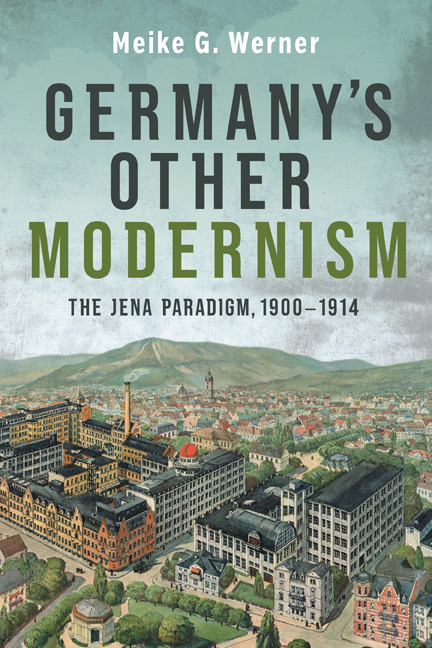2 - The Publisher as Founder of a Cultural Empire: Eugen Diederichs in Jena
Published online by Cambridge University Press: 11 January 2024
Summary
Jena is the center of the world.
For the center of the world is Europe,
the center of Europe is Germany.
But at the midpoint of east and west,
of north and south is Jena.
—Eugen DiederichsJena as Cultural Paradigm
BETWEEN 1896 AND 1897 Diederichs spent fourteen months roaming Italy on foot. Twenty-nine years old, he had already changed his work from farming to bookselling and had garnered several years of experience with varied bookstores. From the letters and short articles that he wrote for bookshop brochures and the local press in Naumburg, as well as from his published recollections much later, we know that this former enthusiast of Westerns and the novels of E. Marlitt became a devotee of modern literature, “for it made short work of all that old-fashioned junk.” Like many of his generation, Diederichs was drawn instead to Henrik Ibsen, to Gerhart Hauptmann and Max Stirner, to Arnold Böcklin, to Max Klinger and above all to Friedrich Nietzsche. He carried a copy of Thus Spoke Zarathustra in his knapsack and corresponded with Nietzsche's sister. He was happy whenever he found himself overcome in his wanderings through old gardens by the sea, a “Böcklin mood, as he liked to think.” He saw Italian art and culture through the eyes of Jacob Burckhardt, whose Civilization of the Renaissance in Italy he had studied carefully before his trip. Apart from his Baedeker and other travel guides, he relied especially on Burckhardt's Cicerone, which he called “my actual guide… . I did not leave any town until I had seen everything.” This immersion in antiquity and the Renaissance “was not so much a pleasure” for him as it was “an outgrowth of my individuality [Persönlichkeit] in a humanistic sense.” Always in flight from his depressions—an affliction that ran in the family—this young pilgrim was constantly in search of himself: “A man has to redeem himself according to the new religion,” as he wrote in 1892 under the influence of Nietzsche's Zarathustra.6 It was in this frame of mind that, on August 22, 1886, Diederichs experienced an awakening. It was occasioned by his visit to Tempio Malatestiano, the unfinished cathedral of Rimini.
- Type
- Chapter
- Information
- Germany's Other ModernismThe Jena Paradigm, 1900-1914, pp. 52 - 172Publisher: Boydell & BrewerPrint publication year: 2023



